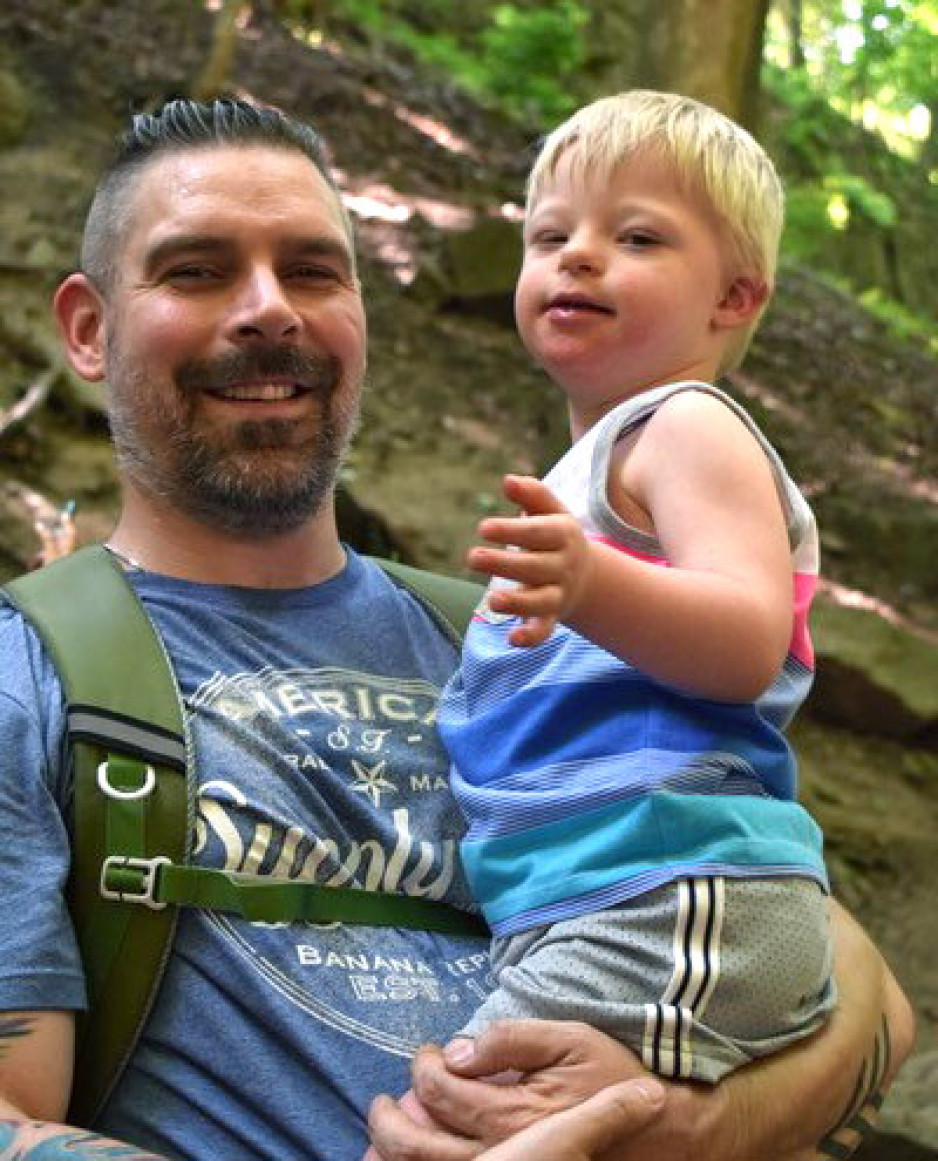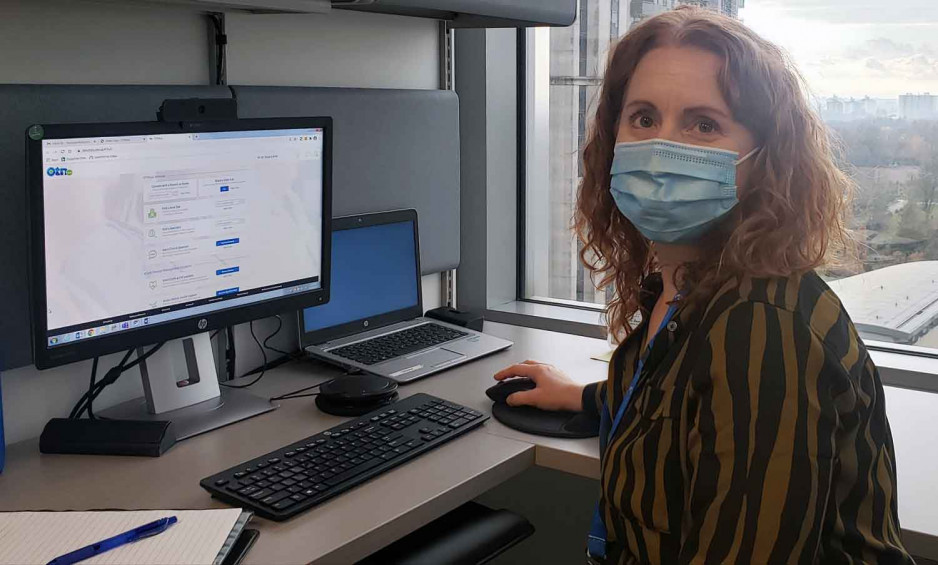OSI Clinic successfully transitions to virtual care
For St. Joseph’s Operational Stress Injury (OSI) Clinic, it just wasn’t an option to limit access to patient care when the pandemic hit earlier this year. “The abrupt physical closure of the Toronto Clinic was stressful for patients and staff, and we made quick changes,” reports Dr. Maya Roth, clinical psychologist at St. Joseph’s OSI Clinic – Greater Toronto Area satellite site (GTA satellite site). “Within days, our clinic operational leaders swiftly enabled remote system access for staff and other systems and equipment to support clinicians’ capacity to offer virtual care.”
The clinic is federally funded by Veterans Affairs Canada to provide mental health services to Canadian Armed Forces and RCMP personnel, veterans and their families. It is part of a national network of OSI Clinics across Canada. The catchment area is large – covering Windsor through east of Pickering, and north to Owen Sound – and clinical services are offered in London, Hamilton and Toronto.
Shortly after the physical closure of the GTA satellite site, the Hamilton satellite clinic (where a psychiatrist provides follow-up care two days a week) and the London OSI Clinic, located at Parkwood Institute, also shifted to virtual care.
Most clinical care now virtual
Clinical care transitioned to virtual care using videoconference or phone calls. Some patients were not deemed clinically or logistically appropriate for virtual care, assessed using a clinic-developed decision tool. “We created virtual care ambassadors, resources and a virtual care guide that outlined revised assessment and treatment processes,” explains Dr. Roth. “We reformatted consent forms to document telephone consent, and attended to the impact that safety, privacy and technology have on virtual care.”
Between July and September this year, virtual care accounted for 89% of clinical care provided by the OSI Clinic. During the same period in 2019, virtual care accounted for 19% of clinical care.
A patient’s experience
Paul Glennie, an RCMP officer from Cambridge, has been working with Dr. Roth for several months. “For me, I know therapy works. I have experience with in-person therapy, and I was certainly willing to try virtual. I had my in-take and assessment in-person at the Toronto clinic just before the pandemic and since then have been working with Dr. Roth by video conference.”
It took the pair a few sessions to find their flow and get some traction; as Paul says, “To trust the process.” Paul describes himself as particularly sensitive to following the energy in a room and keenly interested in making human connections. “I admit, I didn’t like it at first. I adapted though, and eventually the technical barrier of our virtual sessions went away.”
Paul credits Dr. Roth for her approach. “Right from the start, she’s done such a great job navigating the virtual environment with me. She’s the pilot - she’s engaged, she drives it, she makes it work. That means everything for a great connection, especially when it’s a virtual one.”
For Paul, virtual sessions mean he doesn’t have to drive to Toronto. “I meditate twice a day, and not having to drive means I can meditate right before my session. If eventually I could choose between in-person or virtual, I think I’d stick with virtual – it’s working well.”
Providers must ease adaption
“All of my patients transitioned to virtual care via video conferencing, with the exception of one who connected via telephone,” reports Dr. Roth. “This has been similar among many of my colleagues. Patients are appreciative for the opportunity for continuity of care.”
“I don’t find I have to work hard to encourage my patients to try engaging in virtual care. I recognize this has not been the case for all OSI staff and patients, for a number of clinical or logistical reasons. It’s important for us to acknowledge that we ask patients to do some work on their end to join an appointment, and to also complete outcome monitoring through the OSI Clinic network system.”
Even with some early technical issues, Dr. Roth’s patients have been very positive about their virtual care experiences. Only one switched to in-person care in August. “Given our larger catchment area, we definitely plan to continue to offer virtual care when things return to normal.”
The “ah-ha” learning
For Dr. Roth, her ah-ha realization is that evidence-based psychotherapy and assessments can be delivered effectively through virtual care. “I’ve also found it’s easy to develop and maintain a therapeutic relationship via videoconferencing. I have a few patients whom I’ve never met in person, like Paul, and I’ve developed good therapeutic relationships with them.”
Dr. Roth’s advice to other providers considering initiating virtual care is to, “Examine your own biases about virtual care, think about the importance of being patient-centred, and give it a try. I encourage you to consult with your colleagues who are engaging in virtual care to learn about their practice and lessons they’ve learned to support their clinical work.
About St. Joseph’s OSI Clinic
St. Joseph’s OSI Clinic started in 2003 and has grown to 37 staff and consultant physicians including psychology, psychiatry, social work, nursing, nurse practitioners, administration, coordinators, and program evaluation and research officers. Clinicians work collaboratively with referral sources to facilitate access to benefits and services within Veterans Affairs Canada, the Canadian Armed Forces and the RCMP, and to provide assessment and treatment services. The clinic is also mandated to do outreach and research to enhance clinical care and knowledge translation.
About Dr. Maya Roth
Dr. Roth recently wrote an article on virtual care for the Journal of Military Veteran and Family Health. She’s an Associate Member at Ryerson University’s Yeates School of Graduate Studies, an Associate Scientist at the Lawson Health Research Institute, and a Canadian Institute for Military and Veteran Health Research (CIMVHR) researcher. Dr. Roth has been immersed in clinical practice, research and knowledge translation related to military and Veteran mental health over the past decade.
-
Learn more:
If you or someone you know is in need of mental health support due to their military service there is help.

